Last updated on September 9th, 2024 at 08:12 pm
Most if not all ‘Tech’ companies have been slowly doing away with the traditional ‘Project Manager’ title/ role for people who are managing development teams. As companies move towards adopting Agile methodologies the traditional ‘Project Manager’ titles/roles have been replaced with Technical Program Manager (TPM) and Product Owner roles.
A Technical Program Manager is primarily responsible for working with a team of developers and testers to execute the product ideas or features envisioned by the Product Manager. Well, in reality, it’s a little more than that. Roles and responsibilities vary by organization, some have combined both the product and program management roles to give the individual complete authority to envision and execute.
Related Read: What is The Technical Program Manager Career Path Usually?
The Technical Program Manager’s primary responsibilities are to understand the vision of the product from the product owner and then go on to sell the idea to his people and build a high-performance team. He would have to work with the team to get through their roadblocks, priorities their initiatives and guide the team to build a great, scalable product. The TPM does have several similarities to a traditional PM- they are still managing risk and balancing projects or sprints with the three key aspects of the iron triangle – Time, Cost and Features.
Check out my TPM 101 course for getting a better understanding of the TPM role. Get ready to rock your TPM interview with:
In this article, let’s dive into understanding and defining the Technical Program Manager (TPM) Role. We will cover:
- The Role of a TPM.
- Differences between project management vs Program Management.
- The T-Technical Aspects of a TPM.
- Types of Technical Program Managers.
The Role of a TPM
A TPM’s role is quite nebulous, and this is because they are responsible for a variety of aspects and wear different hats. They are liaisons, negotiators, guardians, influencers, and so much more. But their primary role is to deliver a program. They initiate small and large cross-functional programs, they build strong frameworks to initiate, plan, execute, monitor, manage risks and close the project. They are the source of truth of the health of the program.
While working on programs, the TPMs, in particular, are very aware of the technical aspects of the program they are working on. They are able to reason and contribute to the technical responsibilities of the program they own. They are leaders in the space and see several steps ahead and ensure the team does not encounter any blind spots ahead.
Related read: Salary for Technical Program Manager
I believe the Technical Program Manager (TPM) was initially started by Amazon. They have actually experimented with a whole slew of roles over the years like TPPM – technical program & product manager, PPM – program and product manager, now most tech companies actively hire TPMs in almost all their teams.
The TPM role itself is fairly new though it’s gained quite a lot of popularity over the last 5 to 7 years. The newest role actually is the PMT Product Manager Technical role and is primarily for organizations like AWS, Azure, etc. Where the product manager is fairly technical and can drive the technical roadmap of the product like compute or something newer like SQS (Simple Queuing Service)
To clarify, though the title has the word manager in it, it is an individual contributor role. TPM’s don’t have a team of developers reporting to them but generally have a team of engineers they work with.
Let’s start with “Program Management” and leave the T for the time being.
Differences between Project Management and Program Management
Project Management
- A project is a temporary endeavor. Again I’m talking about traditional Project management.
- 5 – Phases – initiation / definition, Planning, execution, control, closure.
- It has tasks dates and milestones..
- Project Managers generally lead ERP implementation, System implementation, where the system they primarily work on is playing a supporting function within the organization.
- Work breakdown structure making timelines milestones and Integration, scope, time cost, quality, HR, budget, dependencies on other tasks, risk management.
- Typically for a waterfall type of project, you definitely and know your end goal. It’s crystal clear. You plan your timelines and budget accordingly.
- You do not deviate from your plan. And deviations are dealt with a CAB Meeting (What is a CAB Meeting). Analyzing the request itself and its impact on the project as a whole.
- You typically see that waterfall-style project management is great for fixed outcomes. Building a bridge, building something that is not a vague or nebulous idea. ERP – You have all the requirements ahead of time or building a medical device that has a lot of regulations in place.
- Knowing you are communicating effectively stakeholders
- You also have Agile Software management – With Kanban or Scrum. The most effective use of agile methodologies is for building products by product companies, i.e building a software product.
- Scrum is used for feature work in general.
- You break down your stories.
- Prioritize your backlog, Start your sprint planning. Lock it with the items the team is setting out to achieve and then close your sprint with a retrospective.
- Kanban on the other hand – is used more often when you have a team dealing with tickets that need a quick turnaround.
- Normally it’s first come, first serve, or picked up by priority.
- Effectiveness and efficiency are measured by using lead time and cycle time.
Program Management
- A collection of projects that when done together give you a more impactful outcome.
- Normally found in core tech companies.
- Netflix – launching social – this would be a program or Programs could be small or big that yield a higher impact
- The projects – team 1 – profiles, 2 – photos, reviews ratings
- Think about launching a device like echo – there are over 50 teams working on anything from – Account management & activating the device, capturing the voice, doing the natural language processing, querying for the result and returning the data, there are teams working on the various pieces of the hardware – the design, wifi, the speakers, power, Partners building skills on Alexa.
- Then you have the marketing team, you have the finance team, you have the PR, Legal teams, partners, who are building Alexa skills.
- So in such cases, you have uber or principal Program Manager who owns a big slice of a particular product and then you have TPMs or PM who own the smaller pieces.
- Each of the smaller pieces is as important and as impactful for the whole product to deliver the great experience for the end user. If one thing does not meet the bar then it could make the entire product fail.
- So that should give you an idea of what Program management is. – Its a collection of smaller projects that are carried out to achieve a singular goal.
Related Read: Core Skills for a technical program manager
The T – Technical Aspects of a TPM
- What this means is that the program manager is technically sound and able to understand the technical system design and architecture to have conversations with the respective project teams.
- It is expected that the Technical Program manager has a vast breadth of knowledge. And this is because as a TPM you most often interact with Various technical teams across the board, they could be the networking team, the Security, compliance teams, Front, end, back end.
- A Technical Program Manager is expected to know in thorough detail the technical design, the APIs, and all the technical details of his team and needs to have the understanding of how all the adjoining teams work.
A top-tier TPM would be familiar with all the tools we just spoke about – Pure traditional Project Management, Agile methodologies, Large scale Cross team or multi-team Program Management & Technical know-how with excellent system design. Yes, it sometimes seems daunting but it is what it is.. That’s what it takes to be a top-notch TPM.
I hope I’ve been clear and helped you understand the difference between project management, program management, and Technical program management.
Related Read: 50+ Technical Program Manager Interview Questions
Types of Technical Program Managers
There are many types of TPMs.The list below is not exhaustive but can be used as a target jobs that align with your interests.
- Front End: Web, iOS, Android. – Depending on the size of your company you might have one TPM handling each operating system individually. Working with Designers, User Experience teams, the Information Architecture team, User Research, and work with the backend API TPMs. It is probably on of the most interesting Roles to be in as you get to build and see customers using the products you build. Feedback is quick and is kinda a very fulfilling job.
- Backend: API, SDK – Platform. – Depending on the size of your company
- Signup and auth
- Several doing the core features depending on the size of your company.
- Ingestion or media or ingestion of products
- Recommendation engine
- Encryption
- Search
- Pricing
- Integration: PM who works with 3rd parties to integrate their APIs. These TPMs own or work with a 3rd party SDK’s, Samsung
- Business Intelligence: Big data, Hadoop, MapReduce, Machine learning, AI, etc. – fraud detection, Recommendation, Predictive text, Search
- ERP: Implementing Oracle EBS, SAP, SalesForce, Microsoft Dynamics, etc.
- Localization: To take existing products/services to international markets. Amz in 10 countries. Need to know 2 languages. Need to understand utilities.
- Hardware: Chip Manufacturing. VMWare, Nvidia, Intel, etc — -Non-limited to + All companies building out the cloud. Also, think about all the IoT devices echo, nest, kindle all need hardware, software TPM’s
- Firmware TPMs: Coordinates the development and integration of low-level software (firmware) that directly interacts with hardware to ensure seamless functionality across devices.
- Data Center: With all the cloud stuff happening, there is a dearth for data center PMs.
- Process: Lean, Six Sigma, Process optimization, Scrum/Agile Coach, PMO.
- Launch /Release PMs – Coordinating with 10 or 20 other PMs to get a Program to a launch. Kindle, Echo, New products.
- Security: Managing Risk, Governance, Compliance.
- Operations: Stability, Scalability, Monitoring, Disaster Recovery, System Health.
- UX/UI: Specialize in managing large UX teams to have a consistent story and feel within the product.
- Cloud TPM – Architects. Understanding the cloud. Help organizations move their existing infrastructure on to the cloud.
There you go hopefully that explained what a TPM does.
Unlock the essentials of Technical Program Management with this course designed to help you master the skills, mindset, and strategies needed to thrive as a TPM. Whether you’re just starting out or looking to level up, the TPM 101 course– it covers everything from the fundamentals to landing your dream role!
Frequently Asked Questions (FAQs)
Question : Is TPM a good role in Google or Amazon?
Yes, a TPM is a great role to work at google or any other company. Its a role where one gets to lead and show ownership.
Question : How much do TPMs make at Amazon?
There are several factors that Impact what a TPM would earn, location and experience being the two primary factors. A TPM in the north America could earn anywhere from $210k to $291k as a Sr. TPM.
Question : What is a technical project manager?
A Technical Project Manager is a title generally used at organizations that generally are more inclined in having an IT team which handles all the systems for the the orginization.
Question : Is TPM an IC role?
Most TPM roles are IC roles, however there are also TPM managers who manage a group of TPMs. These teams generally own running large cross functional programs that are long running.
Question : What is the difference between PM and TPM?
A Product Manager is generally responsible for the What and the Why? What should the team be working on and why we should be working on it. They own the vision and the strategy of the product. A TPM on the other hand is responsible for the execution of the program, in other words the how and the when.
Ready for your next career adventure?
Get personalized advice from Mario to confidently choose the roles, companies, and skills that shape your future!
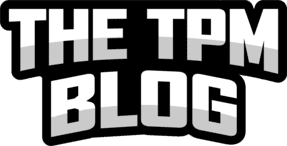

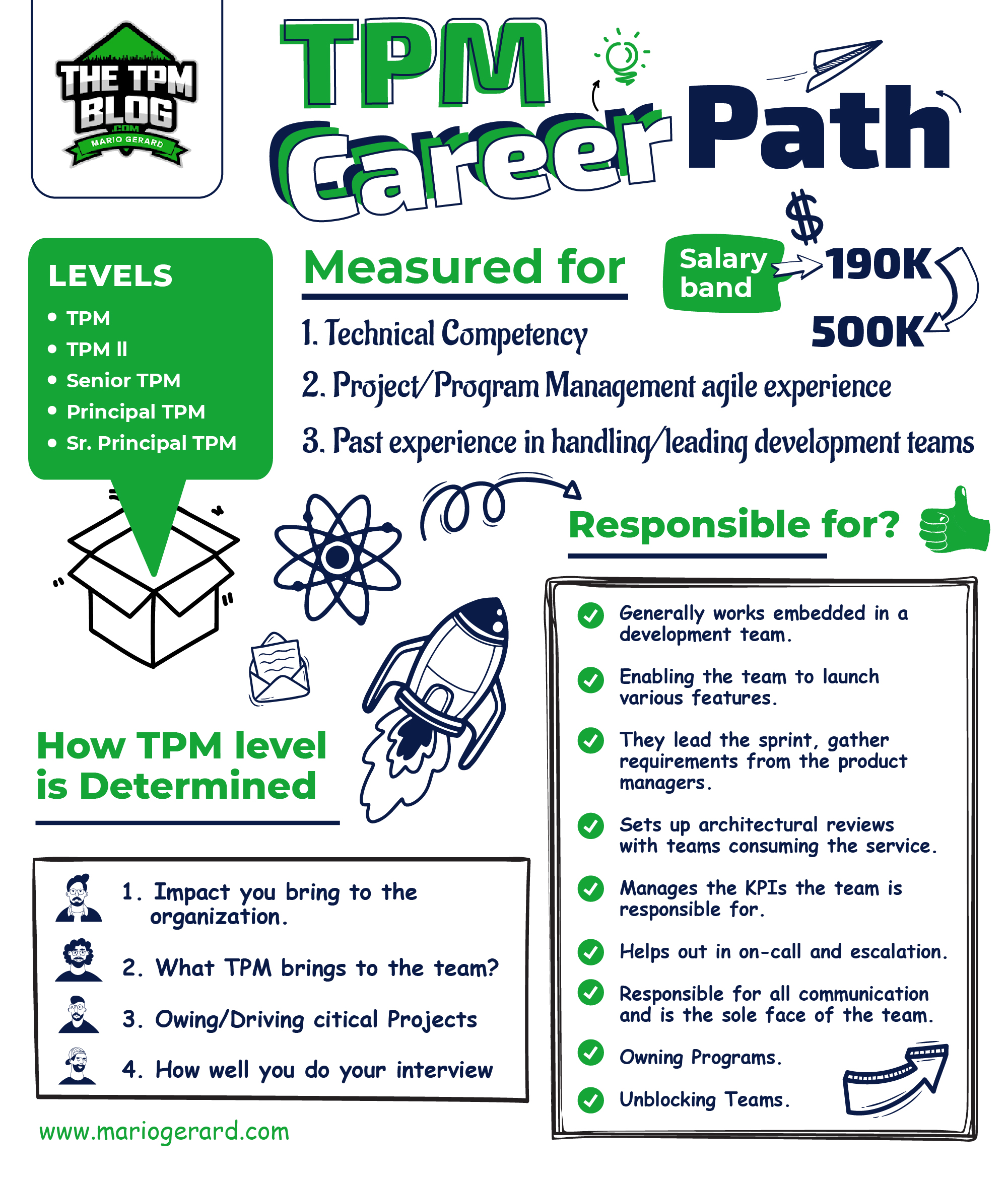
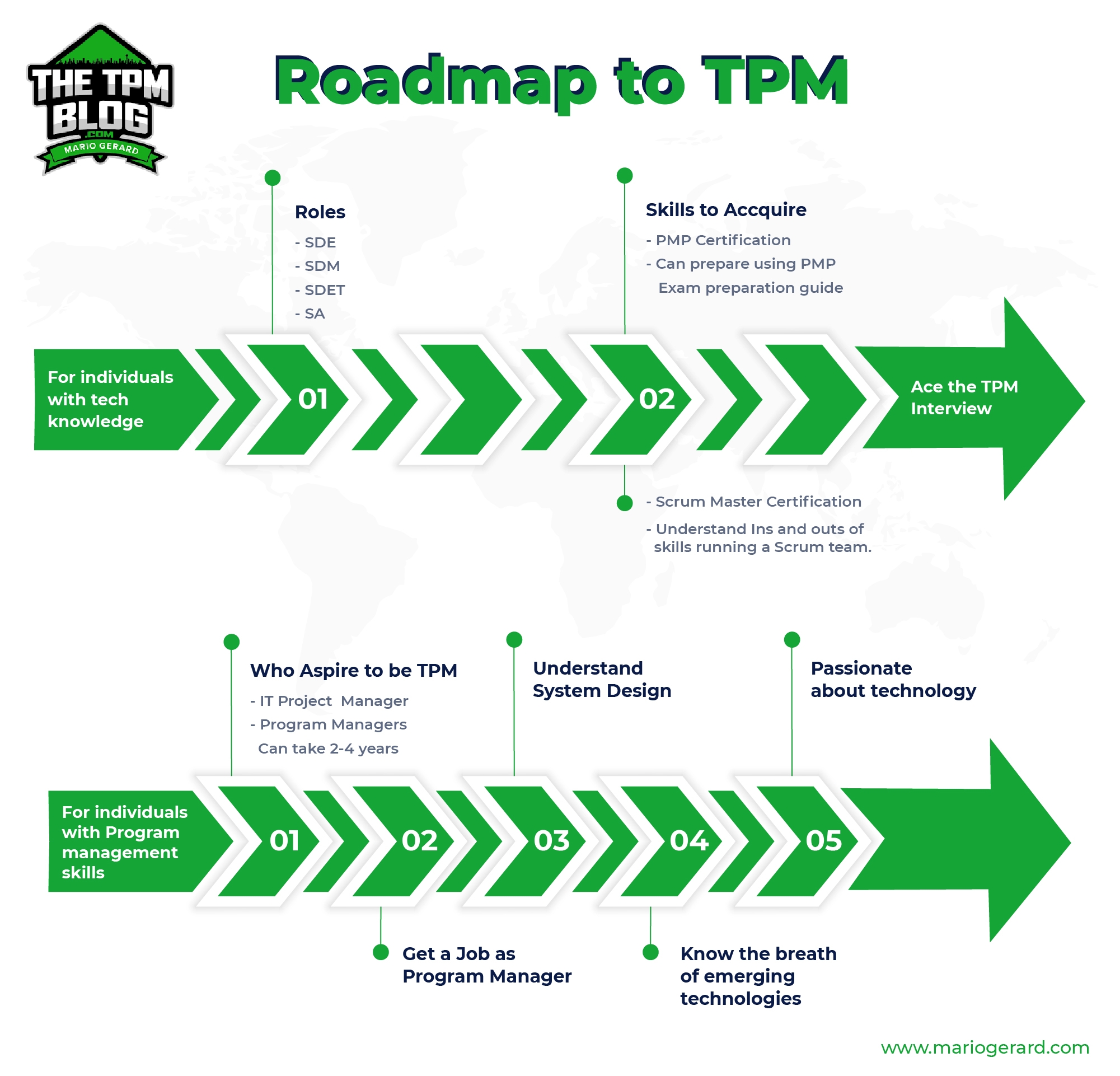
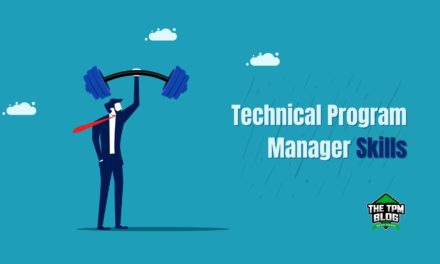

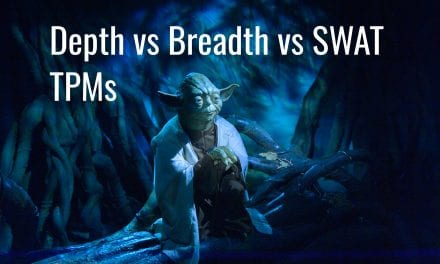



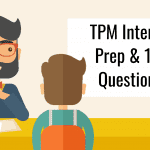
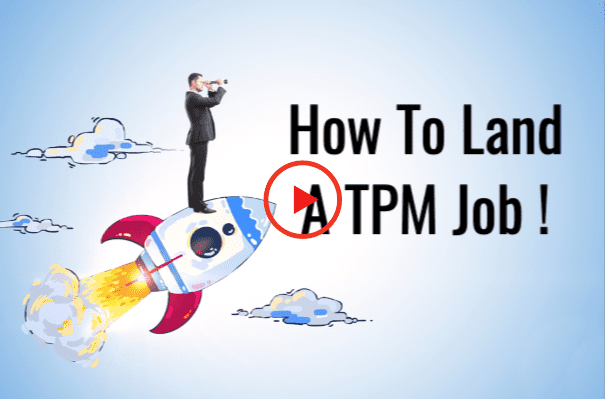


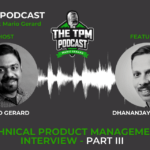

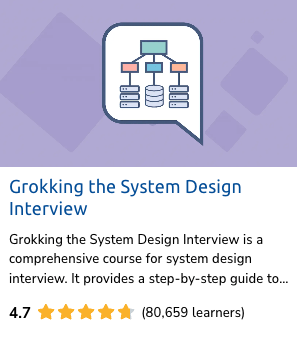

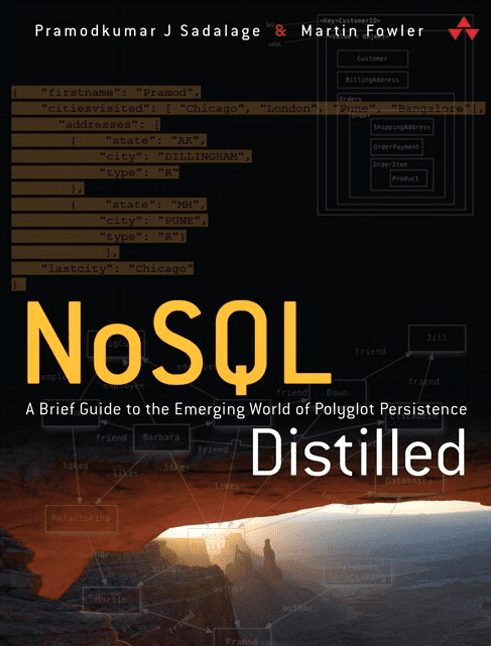
Thank you for this amazing article Sir. This post is full of information 👋. Definitely helped me understand more about technical program manager’s roles and responsibilities.
Well defined career path for a technical program manager. A great role for top tech comps
Super informative and valuable. In a true sense, the best description of TPM role
By far, the most authentic article covering all aspects of a technical program manager. Great post.
You are right Nishant. Nice catch. The post is updated
Last part in Q6: “A TPM on the other hand is responsible for the execution of the program, in other words the how and the why.”
Should it be “…how and the when” ?
As usual the article is awesome